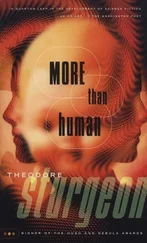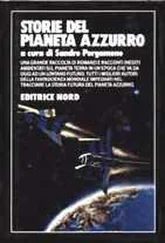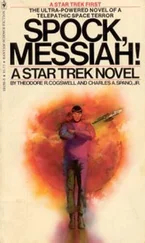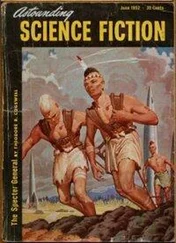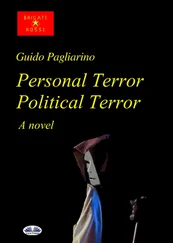He flipped through some files and handed her a folder. “If you have any hopes of working here, you must read this list of reference books. It’s compulsory reading for anyone seeking a teaching position. I have to add that before any decision is made you will be examined thoroughly on these texts.”
Marusia scanned the titles and quickly noted that all the required reading material was in Russian. If Belorussian was the official language as Yeliseyenko had just pointed out, why were the books in Russian only? This was cause for further confusion and she tried her best to make sense of it. Although she would have been the first to admit that she did not know much about the new regime, the one thing she did know was that in order to get anywhere she would have to learn about it and ultimately to contribute to it, to accept it with blind devotion. She was prepared to do that. But reading through all this material could take days, even weeks, and time was something she didn’t have. “Excuse me, comrade,” she said. “Allow me to be direct. About a teaching position … I am most eager to find work … You must understand, my father is old and feeble, and my mother is not well. We need to live somehow … I thought you might find me a job right away, maybe in a village somewhere….”
“A village? Hmm …” Yeliseyenko thought for a moment. Then he shrugged and shook his head. “Unfortunately, as I’ve already mentioned, without knowledge of Belorussian your prospects don’t look very …”
Just then a phone rang behind a closed door. The faint sound of a woman’s voice could be heard, then the opening and closing of drawers, and before long Yeliseyenko’s secretary, wearing a plain navy dress with white cuffs, and a string of fake pearls, came into the office. She put a stack of files on the corner of his desk, and whispered something in his ear.
Yeliseyenko rose, looking distracted, and said quickly, “If you’ll excuse me, something unexpected has just come up. I’ll be back in about fifteen minutes.” Grabbing a folder from his drawer, he hurried to the doorway, where just before he left, he called out to them, “Zena Maximovna, meet Maria Valentynovna. Maria Valentynovna is applying for a teaching position, in a village school, it appears. Please go ahead, ladies, get acquainted with each other.”
Zena turned to Marusia and extended her hand. Her voice was low and pleasant. “Good to meet you. We haven’t actually met, but I know your name is Maria Bohdanovich. I saw you at the teachers’ New Year’s Eve dance. You were there with Ivan Kulik and your cousin, Sergei, I believe.”
Although Zena welcomed Marusia affably, she was surprised to see her in the offices of the People’s Commissariat of Education. Like so many others in the city, she had heard about Marusia and Sobakin. She wondered how such a lovely girl could have gotten involved with someone like him. Sobakin was a known and feared NKVD man, with a face like a pumpkin, and he was married. “So you want to teach in a village? Do you like village life?”
“I don’t really know.” Marusia shifted uneasily. “I’ve always lived in Pinsk, but I thought I might like to try something different. Life in the country would certainly be slower and much more peaceful than in the city. This appeals to me. Sometimes it’s good to get a fresh start in life.”
Zena immediately concluded that what Marusia really wanted was to escape Sobakin. She wanted to warn her, to say, “Don’t make matters worse by going to a village somewhere. At least in the city there are places to hide: you can slip behind a building, call on friends, lose yourself in a crowd. But in the village you’d be like a sitting duck. Good God, think it over!” But she said, “A teaching post might be difficult to find, but Yeliseyenko has been promising me an assistant for some time now. If you’d consider office work, I’ll talk to him. Of course, I understand you have your mind set on teaching, but in the meantime …”
Color rushed to Marusia’s face. She had not expected anything like this. She was so thrilled she hardly knew what to say. “A job? Here? In the Oblispolkom ? Why, that would be wonderful! Yes, yes, I’ll take it if the position is available.”
Suddenly the prospect of working in the city became more appealing to her than working in a village; it was almost as though she had read Zena’s thoughts. Indeed the city would be much better for her. Zena smiled. “I’ll see what I can do. If Yeliseyenko gives his approval, we’ll be contacting you. You should be hearing from us in a day or two. Goodbye for now.”
Marusia went down the stairs and into the courtyard in a dream. The possibility of working in the Oblispolkom overwhelmed her. A job there would transform everything. She couldn’t wait to tell her mother that she might soon be earning her living.
The next few days were spent in painful suspense. Marusia tried to keep busy with housework, and even took up needlework. When at last she turned her attention to the books assigned by Yeliseyenko, she managed to settle down. On the third day she opened the door to a messenger who handed her an envelope. She ripped it open and could not believe her eyes. Tomorrow at noon she was to come to the Oblispolkom offices, to the Department of Education and start her new job. Completely overwhelmed, she let out a cry of joy.
At precisely twelve o’clock the next day, Marusia mounted the stairs of the Oblispolkom . Quickly checking her dress and smoothing her hair, she entered Yeliseyenko’s office. He was sitting at his desk, head bent, flipping through some books. His shirtsleeves were rolled up to the elbow and he wore a huge ring with a blue stone on his left hand. He didn’t seem to realize that she was standing there, and stepping closer to his desk, she wanted to say something, but couldn’t think of anything. Yeliseyenko looked up and seemed startled to find her standing over him. Glancing at his watch, he said, “Twelve noon on the dot. Excellent. Excellent.” He got up. “Please, come with me.”
He ushered her into an adjoining room and returned to his office. She was surprised to see how small this room was, only slightly larger than her kitchen pantry. It had dark oak flooring, a relatively high ceiling and dismal gray-green walls. The room was stuffy, but a long, narrow window looking down onto a busy street helped to brighten it. There was a cheap pine desk, which obviously belonged to Zena, who was not there, and a peeling veneered table stacked with papers. On the wall hung a large picture of Stalin.
After a moment, Zena appeared in the doorway carrying several heavy cloth-bound binders. Looking somewhat distracted, she greeted Marusia, and asked her to have a seat; she would be with her shortly. She sat at her desk and slipped a sheet of paper into the typewriter. Her fingers raced across the keys.
Marusia hadn’t a clue about how to type, and she began to feel inadequate. Watching Zena, she remembered when she had first seen her. It was at the teachers’ dance. A blue dress came to mind, carefully waved shoulder-length hair, a chunky gold necklace. Yes, and she had danced with Kulik, they had held each other in a rather familiar way and moved easily across the floor. She remembered how she, Marusia, had suddenly fled the dance. Had that been a girlish whim? An act of jealousy on her part? She couldn’t possibly have been jealous about Kulik.
“Well, I’m done at last,” Zena said cheerfully, getting up from her desk. “I hope I haven’t kept you waiting too long. Congratulations on your new position.” She reached up to pull a ledger from a high shelf. “This is where we keep our records. It must be filled out every day. It’s self-explanatory really. In any case, if you have any problems, don’t hesitate to ask.”
Читать дальше

